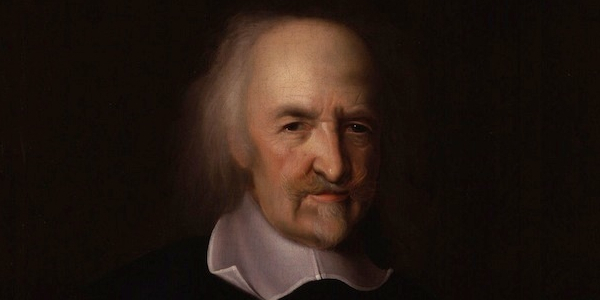 Christianity is a historical religion founded on supernatural events (Acts 2:22-24; 1 Corinthians 15). Accordingly, Christians believe that the miracles recorded in the Bible really occurred. However, some discount belief in biblical miracles on the basis that, as modern science has afforded an increased understanding of natural regularities, belief in miracles has decreased; intelligent people have given up on the fairy tales of virgin birth, water-to-wine, and resurrection in favor of the hard facts of natural science. The Scottish philosopher David Hume made this argument, and the Irish philosopher John Toland lended credence to it. ((Hume, An Enquiry Concerning Human Understanding, 10.2.94; Toland, John Toland’s Christianity Not Mysterious, ed. Philip McGuinnes, et al. (Dublin: Lilliput Press, 1997), 90; cf. Timothy McGrew, “Miracles,” Stanford University, http://plato.stanford.edu/entries/miracles/#GenArg (2011).)) A rationale for this view can be derived from the 17th-century philosopher Thomas Hobbes:
Christianity is a historical religion founded on supernatural events (Acts 2:22-24; 1 Corinthians 15). Accordingly, Christians believe that the miracles recorded in the Bible really occurred. However, some discount belief in biblical miracles on the basis that, as modern science has afforded an increased understanding of natural regularities, belief in miracles has decreased; intelligent people have given up on the fairy tales of virgin birth, water-to-wine, and resurrection in favor of the hard facts of natural science. The Scottish philosopher David Hume made this argument, and the Irish philosopher John Toland lended credence to it. ((Hume, An Enquiry Concerning Human Understanding, 10.2.94; Toland, John Toland’s Christianity Not Mysterious, ed. Philip McGuinnes, et al. (Dublin: Lilliput Press, 1997), 90; cf. Timothy McGrew, “Miracles,” Stanford University, http://plato.stanford.edu/entries/miracles/#GenArg (2011).)) A rationale for this view can be derived from the 17th-century philosopher Thomas Hobbes:
[I]gnorant and superstitious men make great wonders of those works which other men, knowing to proceed from nature (which is not the immediate, but the ordinary work of God), admire not at all, as when eclipses of the sun and moon have been taken for supernatural works by the common people, when nevertheless there were others could, from their natural causes, have foretold the very hour they should arrive. . . .
Therefore when a rod seemeth a serpent, or the waters blood, or any other miracle seemeth done by enchantment; if it be not to the edification of God’s people, not the rod, not the water, nor any other thing is enchanted; that is to say, wrought upon by the words, but the spectator. So that all the miracle consisteth in this, that the enchanter has deceived a man; which is no miracle, but a very easy matter to do.
For such is the ignorance and aptitude to error generally of all men, but especially of them that have not much knowledge of natural causes, and of the nature and interests of men, as by innumerable and easy tricks to be abused. What opinion of miraculous power, before it was known there was a science of the course of the stars, might a man have gained that should have told the people, this hour, or day, the sun should be darkened? ((Leviathan, ed. Nelle Fuller, chapter 37, parenthetical item in orig.))
As Hobbes rightly notes, a natural event may seem supernatural to someone who doesn’t know “how things work.” I, for example, still marvel at the transmission of television signals from satellites and of cell phone signals from towers; I count them as naturally caused only because reliable sources have explained to me—in principle—the natural causes. Lacking these explanations, I might think that television and cellular signals were miraculous.
Yet it would be folly to use a Hobbesian account to attempt an explanation for every instance of belief in miracles by appealing to ignorance of natural causes. In fact, there is no obvious historical correlation between the development of science and the decline in belief in miracles.
[T]he supposed trajectory of societies from ignorant superstition to enlightened rationalism owes a good deal more to selective illustration than one would suspect from reading Toland and Hume. Campbell (1762/1839: 70) points out that in the Qur’an Mohammed made no claim to work public miracles, though by Toland’s (and Hume’s) reasoning the circumstances would have been most propitious for such tales. Coming forward in time, miracle stories abounded in the 18th century, as Hume well knew. And renowned scientists such as Isaac Newton and Robert Boyle were well known defenders of the Christian miracle claims. Other forces are at work in the creation and acceptance of miracle stories besides the relative level of civilization and education. ((McGrew, “Miracles,” parenthetical items in orig.; cf. George Campbell, A Dissertation on Miracles, new ed. (Edinburgh, 1823), 115-116.))
Instead of showing that “enlightened” people turn from belief in miracles as they turn from religion, studies show that Americans increasingly believe in miracles as they turn from organized religion. ((See David Briggs, “Belief in Miracles on the Rise,” The Huffington Post, http://www.huffingtonpost.com/david-briggs/belief-in-miracles-on-the-rise-in-the-age-of-oprah_b_2039372.html (2012).))